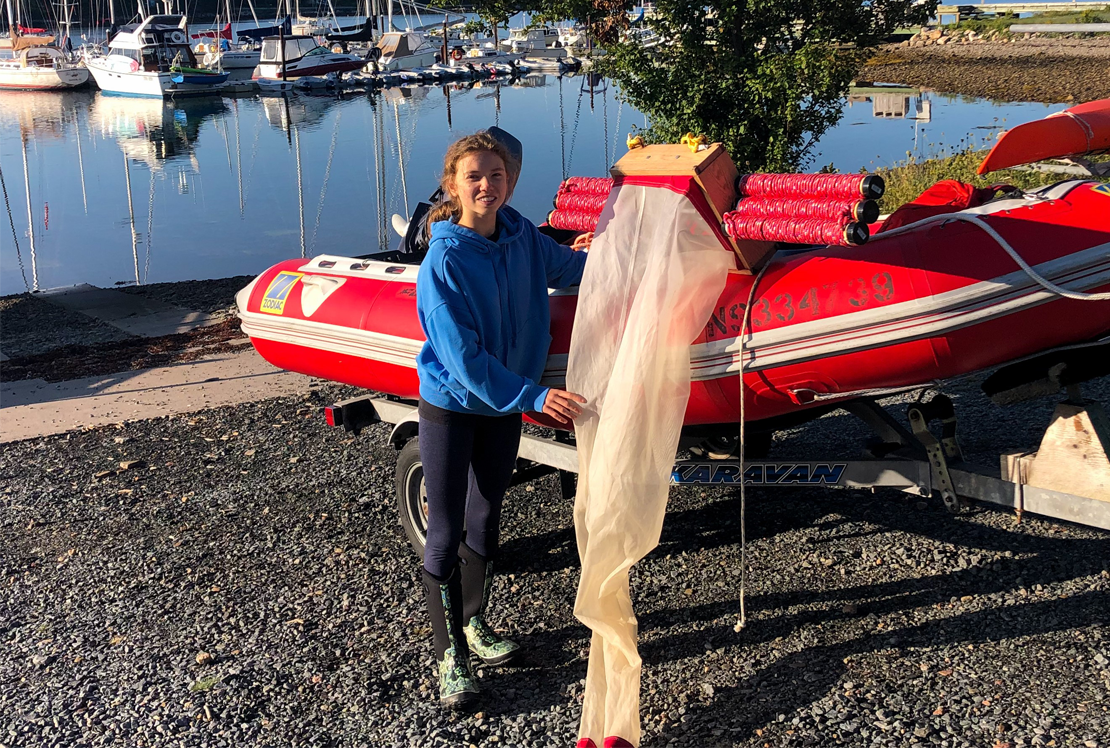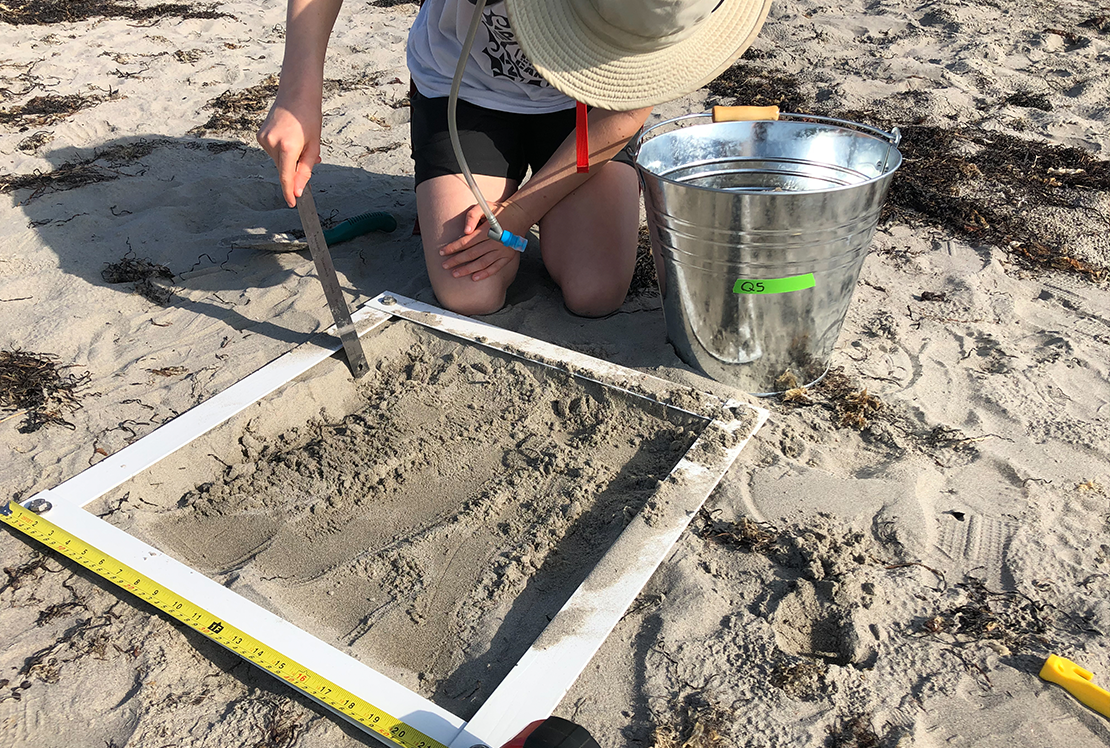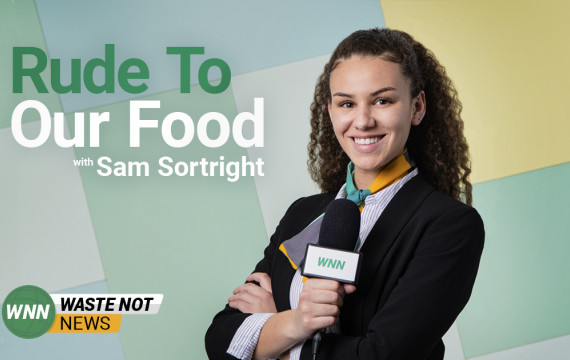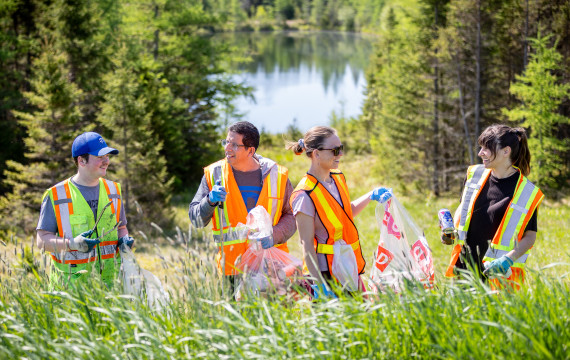Reducing Plastic Waste with a Divert NS Scholarship Winner
Léa Kirchhoff is a 2023 Divert NS Champion of the Environment Scholarship winner who is passionate about reducing plastic waste. This month for #PlasticFreeJuly, we asked Léa to share her experience researching macro and micro plastics with our Waste Not News audience! We hope Léa’s story inspires you this #PlasticFreeJuly to start thinking about small changes you can make to reduce plastic waste.

“Nova Action is a youth-led initiative from Coastal Action that supported a cohort of 10 youths across Nova Scotia to take action on environmental issues in their communities. We pursued an ecological problem of our choosing, and throughout the 2-year project, we researched the issue and shared the results with our community and province. I studied micro and macro plastics on rural and urban beaches, which included extensive fieldwork, data analysis, report writing, and sharing my results. I presented my research to community groups and created an Instagram page (@ns.landandwaterplastics). By sharing my results and experience, I raised awareness of the huge plastic pollution problem and hopefully influenced some people to change some aspects of their lifestyles.

Before starting this research, I had a basic knowledge of why plastic pollution was terrible. I knew that plastics were bound to end up in the environment leading to polluted habitats and that many animals were dying from ingesting plastics. My research helped me learn more about microplastics. I learned that they are everywhere and invisible, leading humans and animals to ingest them. Through bioaccumulation, microplastic toxins become more significant going up the food chain. Learning about plastics throughout my life led me to limit my consumption of single-use plastics. I started using soap bars and shampoo bars, bamboo toothbrushes, compostable scrubs (instead of sponges), buying in bulk, making my own beauty products, reusing jars, buying tote bags, and more. It is difficult to reach zero waste, but I do my best to limit my consumption of plastics. Through this journey, I have found the website Going Zero Waste by Kathryn Kellogg very helpful in living an environmentally friendly lifestyle.”
To find out more about how you can reduce your plastic footprint, check out the Divert NS Refuse, Reduce, Reuse page to learn about small daily challenges that can make a big difference!


